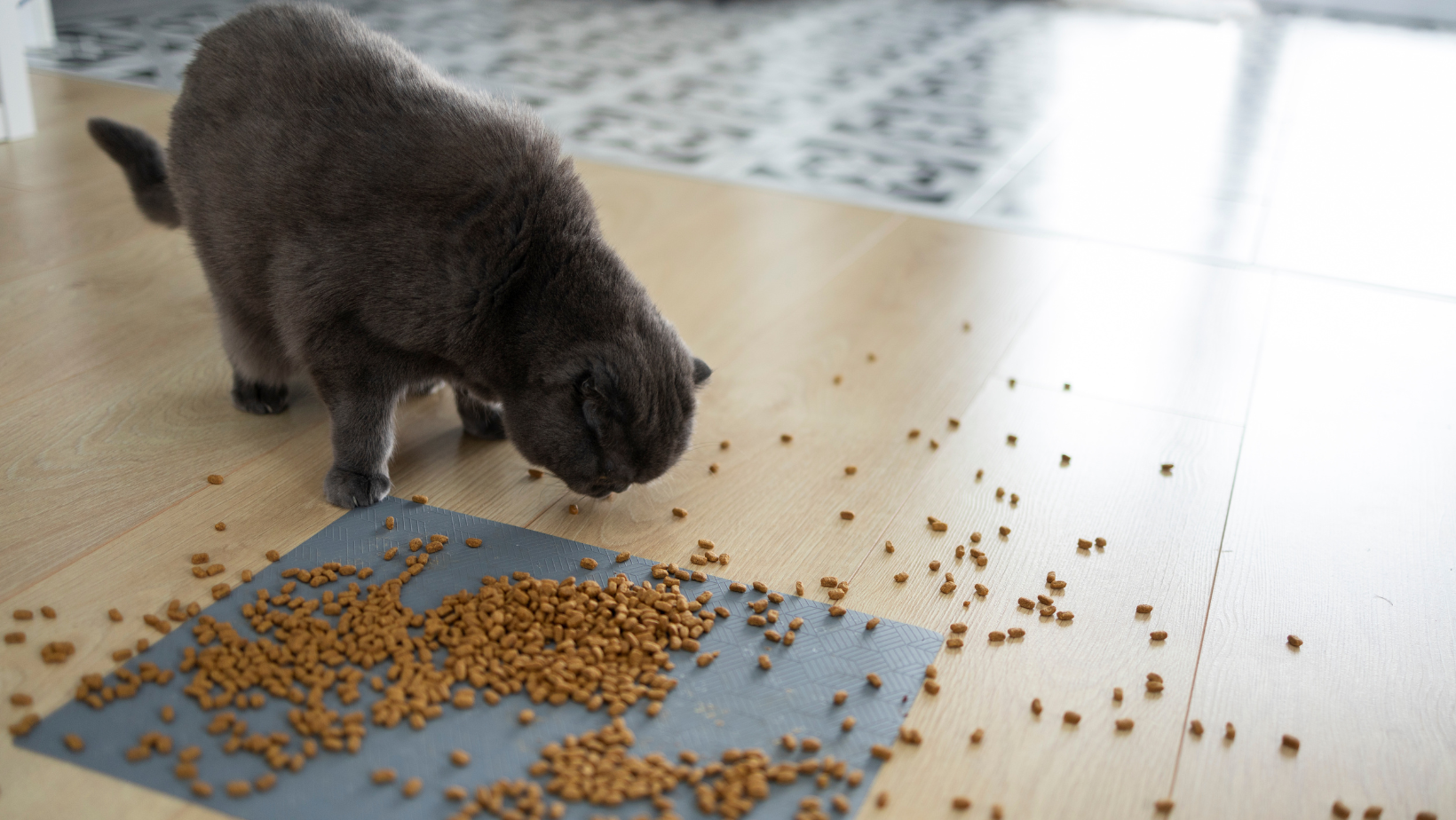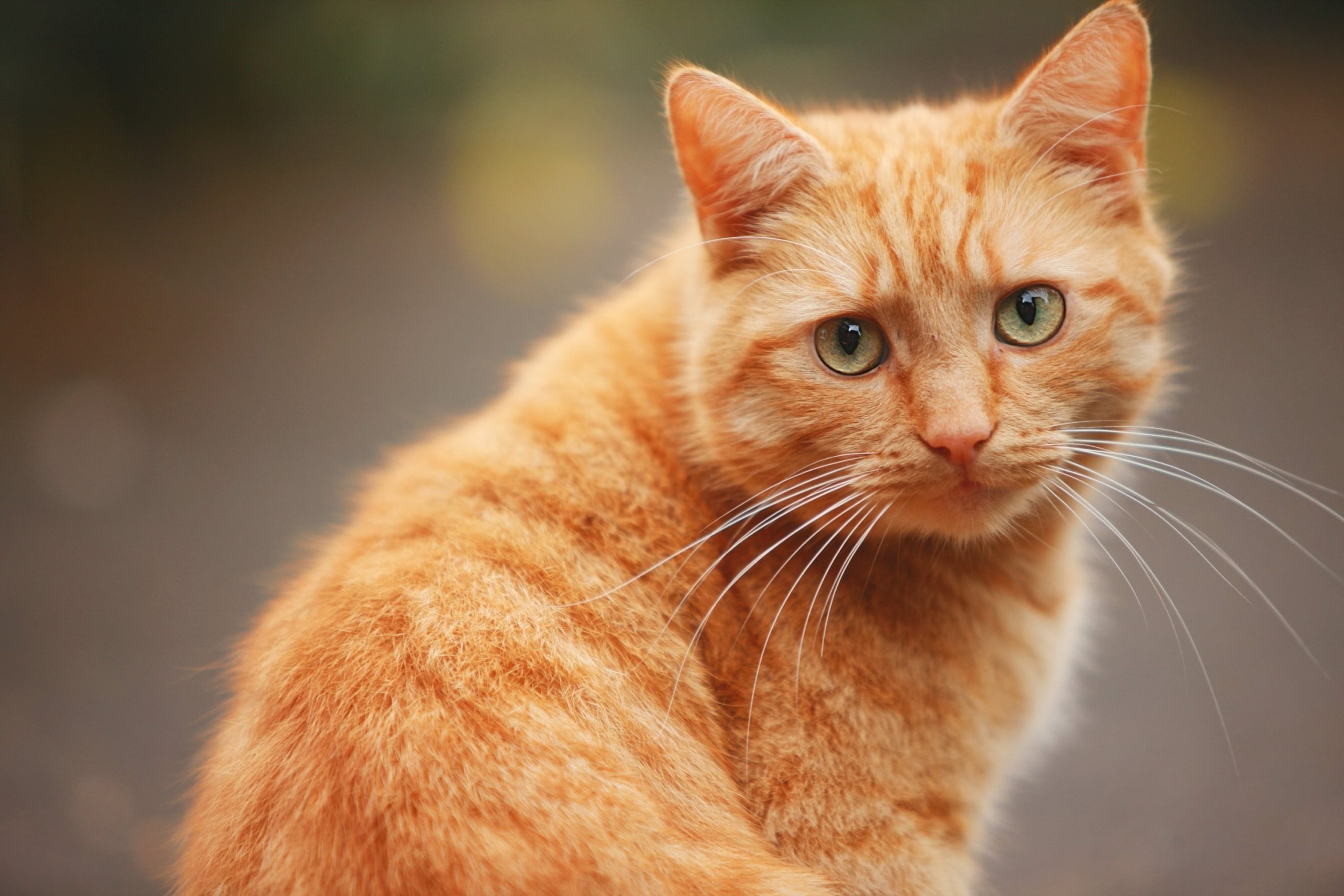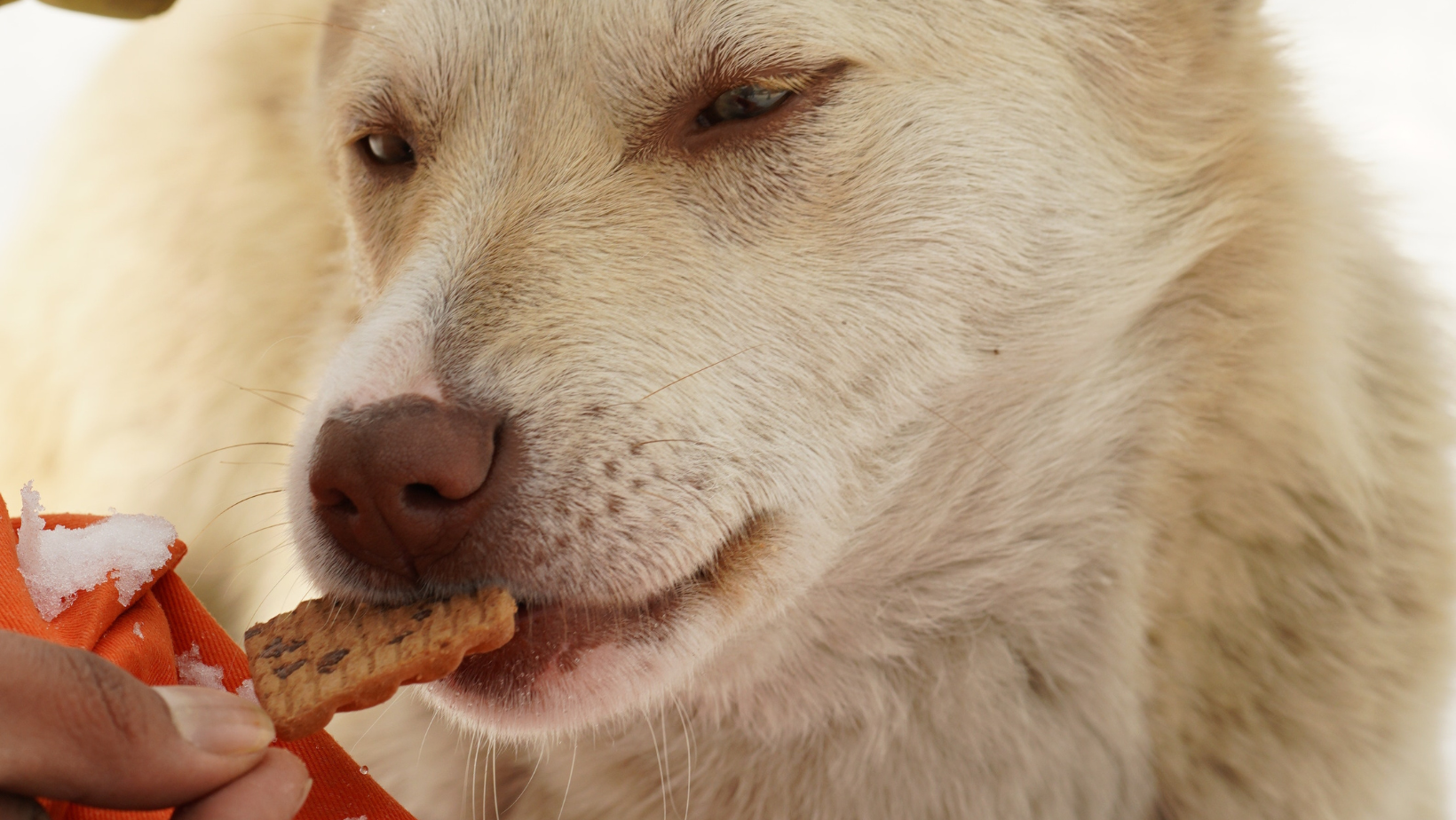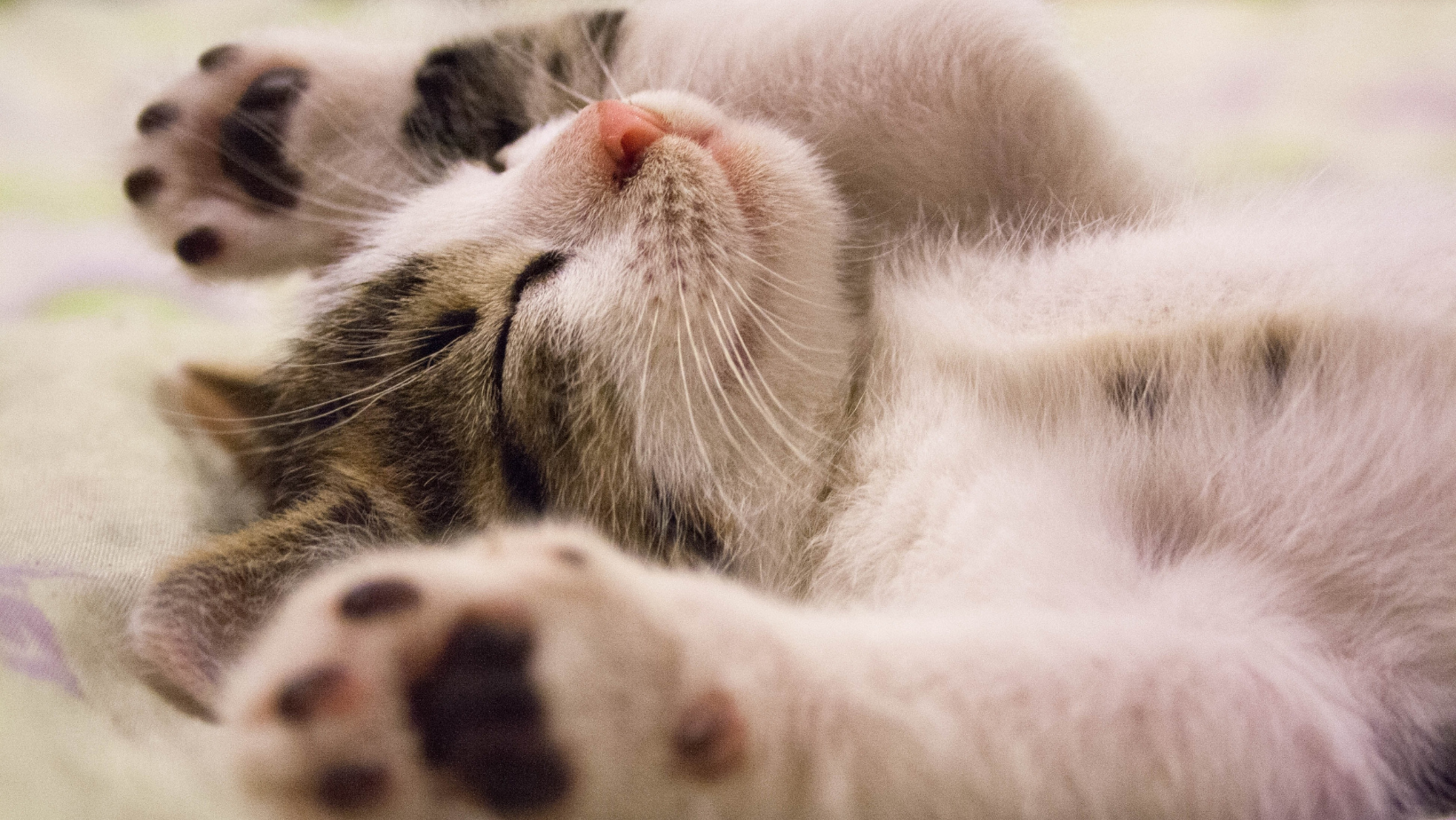Why Is My Cat Always Hungry?

Cats often graze, eating little and often while they are awake during the day. No matter how much food you give certain cats or how frequently you feed them, they never seem to be satiated. Numerous factors, ranging from plain boredom to grave medical issues, might cause this.
8 Reasons for Increased Appetite in Cats
Here are several explanations for why your cat could seem to be constantly hungry, along with information on how to handle each situation and when to visit the vet:
Boredom
Some cats will meow to be fed, while others will eat just to pass the time. You may improve their environment to help them avoid boredom. Including some interactive toys, such as ones that let your cat hunt or look for food, will help eliminate the habit of begging.
Low-Quality Diet
Based on your cat’s lifestyle, feed a balanced food designed for cats. For instance, young kittens and energetic cats need more calories, but middle-aged, sluggish cats need less calories. With the goal of determining the ideal diet and daily calorie intake to ensure a healthy life for your cat, discuss a diet plan with your veterinarian.
Aging and Changes in Metabolism
Cats lose muscular mass and their metabolism alters as they become older. Your cat could be more ravenous to keep up with these changes. To assist your cat stop begging for more food, your veterinarian can help you figure out how much fat, protein, amino acid, and carbohydrate your cat should consume each day.
Medication Side Effects
A number of drugs, including appetite stimulants like mirtazapine or capromorelin and corticosteroids like prednisolone, stimulate hunger. When prescribing new drugs, your veterinarian will go over these potential adverse effects with you. These drugs may occasionally be prescribed by veterinarians to help some cats who are not eating enough.
Intestinal Parasites
Cats may become more ravenous if they have certain types of parasites, particularly roundworms and tapeworms, or if they have severe parasitic diseases. Even when your cat is served regular, high-calorie meals, the parasites take a significant portion of the calories the cat is consuming, leading to weight loss and hunger.
To help rid your cat’s body of these intestinal parasites, your veterinarian can do faecal tests and administer the proper deworming drugs.
Hyperthyroidism
The thyroid gland in cats produces too much thyroid hormone, which results in hyperthyroidism. This hormone is produced by a healthy thyroid to keep the body’s metabolism in check. A cat with hyperthyroidism has an increased metabolism as a result of high hormone levels.
Weight loss, muscular wastage, and sometimes a markedly increased hunger are all caused by an accelerated metabolism. Additionally, this illness frequently results in increased urination, thirst, and vomiting. Veterinarians use physical examination and blood tests to identify hyperthyroidism.
If your cat is a good candidate, your veterinarian may recommend radioactive iodine (I-131) therapy in addition to medication to reduce thyroid hormone production (methimazole). Due to the issue of hypothyroidism and hypoparathyroidism after the gland is removed, surgical thyroidectomy is rarely done.
Diabetes Mellitus
Type I diabetes affects cats that do not produce enough insulin or do not respond to the insulin that is present in their bodies (type II diabetes).
Both forms of diabetes in cats hinder the body from converting glucose, the body’s main source of sugar, into useful energy, leading to high blood sugar levels. This causes your cat to feel hungry while having high blood sugar (high blood glucose).
You may also experience weight loss, a dull hair coat, increased thirst and urination, and in more severe cases, vomiting, diarrhoea, and listlessness, in addition to increased appetite. Utilizing urine and blood glucose tests, your veterinarian can make a diagnosis.
Cats with diabetes require insulin treatment (Glargine, ProZinc), which is typically required for life. In order to control blood sugar levels and appetite, diet adjustments (Royal Canin Glycobalance, Purina DM, Hill’s m/d) can also be useful.
Malabsorptive Diseases
Small intestines that have intestinal neoplasia or IBD may not be able to effectively absorb the nutrients from the food that your cat eats. Weight loss, muscular wastage, and frequently an increase in hunger result from this. Vomiting, diarrhoea, and pica are usually present along with these symptoms (eating non-food items).
Exocrine pancreatic insufficiency (EPI), a disorder in which the pancreas fails to generate enough enzymes to aid in the breakdown of food, can occasionally be identified in cats. This prevents the body from absorbing the nutrients from the diet.
Small intestine malabsorption illnesses are frequently diagnosed with blood tests, urine tests, and abdominal imaging. Treatment is determined on the diagnosis. Changes in diet to hypoallergenic/novel protein diets that are simple to digest, probiotics, vitamin B12 (cobalamin), occasionally oral steroids, chemotherapy, and/or the addition of digestive enzymes are typically advised to help with hunger problems.
Should You Go to the Vet if Your Cat Is Always Hungry?
It’s crucial to make an appointment for a vet visit if you notice that your cat is consistently hungry (for more than 5-7 days) or if you notice any of these other symptoms:
- Vomiting
- Diarrhea
- Weight loss
- Frequent vocalizing
- Worms in the stool
- Increased thirst
- Increased urination
- Lethargy
- Episodes of not eating
Suddenly eating non-food items How Vets Find the Cause for Increased Appetite in Cats
Testing may include:
· Tests of the liver, kidney, thyroid, electrolytes, red and white blood cells, and complete blood workup
· Intestinal parasite detection using faeces
· X-rays or ultrasounds of the abdomen to examine the gastrointestinal tract
A gastrointestinal panel blood test is sometimes advised to further check for disorders of the small intestine that affect absorption.





